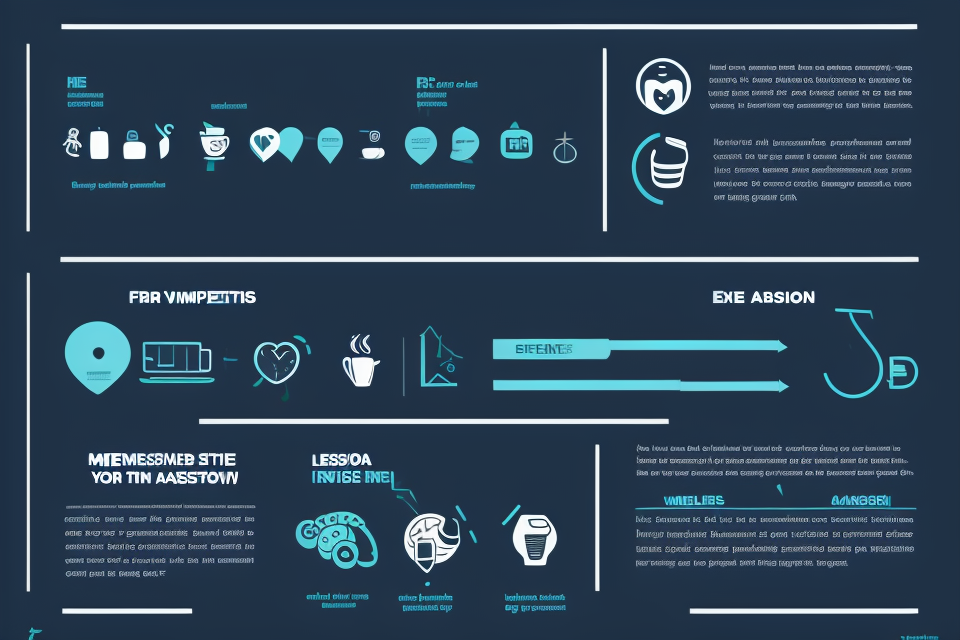
Is your heart racing faster than usual? If so, you may be wondering if there’s something to worry about. While a high heart rate can be a normal response to exercise or stress, it can also be a sign of an underlying health condition. In this article, we’ll explore when you should be concerned about a high heart rate and what steps you can take to keep your heart healthy. Whether you’re an athlete or just someone who’s curious about their health, read on to learn more about how to monitor your heart rate and what to do if it’s too high.
What is a normal heart rate?
Factors that affect heart rate
When it comes to heart rate, there are several factors that can affect an individual’s resting heart rate. These factors can include age, physical fitness, hydration levels, stress levels, and medications.
Age
One of the most significant factors that can affect heart rate is age. As a person gets older, their resting heart rate tends to decrease. This is because the heart muscle becomes more efficient at pumping blood over time. However, it’s important to note that a lower heart rate at rest does not necessarily mean that an older person’s heart is healthier. Other factors, such as underlying health conditions or medication use, can also play a role.
Physical fitness
Physical fitness can also have an impact on heart rate. People who are physically fit tend to have lower resting heart rates than those who are less active. This is because the heart muscle becomes stronger and more efficient with regular exercise. Additionally, physical fitness can also help to regulate heart rate variability, which is the variation in time between heartbeats.
Hydration levels
Dehydration can cause an increase in heart rate, as the body tries to compensate for a lack of fluids. When the body is dehydrated, the blood becomes thicker and more viscous, which makes it harder for the heart to pump blood effectively. This can lead to an increase in heart rate and a decrease in stroke volume, which is the amount of blood pumped by the heart with each beat.
Stress levels
Stress can also have an impact on heart rate. When a person is under stress, their body releases hormones such as adrenaline and cortisol, which can cause an increase in heart rate. This is known as the “fight or flight” response, and it’s a natural mechanism that helps the body prepare for potential danger. However, chronic stress can have negative effects on heart health, so it’s important to manage stress levels through techniques such as meditation, exercise, and therapy.
Medications
Certain medications can also affect heart rate. For example, beta blockers, which are often used to treat conditions such as high blood pressure and anxiety, can slow down heart rate. On the other hand, stimulants, which are sometimes used to treat conditions such as ADHD, can increase heart rate. It’s important to talk to a doctor about any medications that are being taken and how they may affect heart rate.
The importance of knowing your heart rate
Understanding your heart rate is crucial for maintaining a healthy heart. It is essential to know what a normal heart rate is and to monitor any changes in your heart rate that may occur.
- Knowing your heart rate can help you identify any abnormalities or potential health issues.
- A normal heart rate for adults ranges from 60 to 100 beats per minute, although this can vary depending on age, activity level, and overall health.
- Monitoring your heart rate regularly can help you determine if you are within the normal range and if there are any fluctuations that may indicate a problem.
- By being aware of your heart rate, you can take steps to maintain a healthy heart, such as exercising regularly, eating a balanced diet, and managing stress.
- Additionally, if you have a medical condition or are taking medication, it is important to know how these factors may affect your heart rate.
- It is always advisable to consult a healthcare professional if you have concerns about your heart rate or if you experience any unusual symptoms.
What causes a high heart rate?
Medical conditions
There are several medical conditions that can cause a high heart rate. These conditions can range from mild to severe and can affect people of all ages. Some of the most common medical conditions that can cause a high heart rate include:
- Atrial fibrillation: This is a type of arrhythmia, or irregular heartbeat, that can cause the heart to beat too fast. It is the most common cause of a high heart rate.
- Hyperthyroidism: This condition occurs when the thyroid gland produces too much of the hormone thyroxine, which can cause the heart to beat faster than normal.
- Anemia: This condition occurs when the body doesn’t have enough red blood cells to carry oxygen to the body’s tissues. As a result, the heart may beat faster to compensate for the lack of oxygen.
- Heart valve problems: Heart valve problems can cause the heart to work harder and beat faster. This can be a sign of a more serious condition, such as heart failure.
- High blood pressure: Uncontrolled high blood pressure can put extra strain on the heart, causing it to beat faster.
- Stress and anxiety: Stress and anxiety can cause the heart to beat faster, as the body prepares for “fight or flight” response.
It is important to note that while these medical conditions can cause a high heart rate, they are not the only possible causes. If you are experiencing a high heart rate, it is important to speak with a healthcare professional to determine the underlying cause and appropriate treatment.
Medications
A high heart rate can be caused by various medications that you may be taking. Some of these medications include:
- Beta blockers: These medications are used to treat conditions such as high blood pressure, angina, and heart failure. They work by slowing down the heart rate and reducing blood pressure.
- Steroids: Steroids are used to treat a variety of conditions such as asthma, allergies, and autoimmune disorders. They can cause a high heart rate as a side effect.
- Thyroid hormone: Thyroid hormone is used to treat conditions such as hypothyroidism. It can cause a high heart rate as a side effect.
- High blood pressure medication: Some medications used to treat high blood pressure can cause a high heart rate as a side effect.
It is important to note that a high heart rate can also be caused by other factors such as physical activity, anxiety, and certain medical conditions. If you are experiencing a high heart rate, it is important to speak with your doctor to determine the underlying cause and develop an appropriate treatment plan.
Lifestyle factors
Lifestyle factors can significantly influence heart rate, causing it to rise above the normal range. These factors can be either acute or chronic and may require modifications in daily habits to maintain a healthy heart rate. Some of the lifestyle factors that can cause a high heart rate include:
Strenuous exercise
Engaging in strenuous exercise or physical activity can increase heart rate. This is a normal response by the body to deliver more oxygen and nutrients to the working muscles. However, overexertion or intense physical activity without proper warm-up or cool-down periods can lead to a high heart rate that lasts longer than necessary.
Caffeine intake
Consuming caffeine, found in coffee, tea, and some energy drinks, can cause a temporary increase in heart rate. Caffeine stimulates the central nervous system, which can lead to increased heart rate and blood pressure. This effect is typically short-lived, but regular or excessive caffeine intake can lead to long-term changes in heart rate.
Anxiety and stress
Anxiety and stress can cause a high heart rate, known as a racing heart or palpitations. This occurs because the body’s fight or flight response is triggered, leading to increased heart rate and blood pressure. Chronic stress or anxiety can lead to persistent high heart rate, which may require medical attention.
Sleep disorders
Sleep disorders, such as sleep apnea or insomnia, can cause a high heart rate. These disorders can disrupt the body’s natural sleep-wake cycle, leading to a higher heart rate during sleep or wakefulness. In some cases, sleep disorders can also lead to underlying heart conditions, such as arrhythmias, which can cause a high heart rate.
Obesity and overweight
Obesity and being overweight can increase the risk of a high heart rate. Excess body weight can put additional strain on the heart, leading to a higher heart rate and increased risk of heart disease. Maintaining a healthy weight through a balanced diet and regular exercise can help prevent a high heart rate.
Poor posture
Sitting or standing in a poor posture can cause a high heart rate. Slouching or sitting with the feet crossed can restrict blood flow and lead to a temporary increase in heart rate. Maintaining good posture can help ensure proper blood flow and prevent a high heart rate.
It is essential to recognize the lifestyle factors that can cause a high heart rate and take necessary measures to modify them. In some cases, a high heart rate may be a sign of an underlying medical condition, and it is crucial to seek medical attention if the high heart rate persists or is accompanied by other symptoms.
When should you be concerned about a high heart rate?
Symptoms that require immediate attention
While a high heart rate may not always indicate a serious condition, certain symptoms may warrant immediate medical attention. It is crucial to be aware of these symptoms and seek immediate help if they occur alongside a high heart rate.
- Chest pain or discomfort: If you experience chest pain, tightness, or discomfort, along with a high heart rate, it could be a sign of angina or a heart attack. It is essential to seek emergency medical care in such cases.
- Shortness of breath: If you find it difficult to catch your breath or experience shortness of breath, especially during physical activity, it could be a sign of a heart problem. In such cases, seek medical attention immediately.
- Dizziness or lightheadedness: Feeling dizzy or lightheaded, especially when standing up suddenly, may be a sign of an irregular heartbeat or other heart condition. If this occurs along with a high heart rate, it is important to seek medical help promptly.
- Fainting or near-fainting: If you feel like you might pass out or experience a near-fainting episode, it could be a sign of a serious heart condition. Seek immediate medical attention in such cases.
- Confusion or difficulty speaking: If you experience confusion, difficulty speaking, or other cognitive issues, along with a high heart rate, it could be a sign of a stroke or another serious condition. It is essential to seek emergency medical care in such cases.
It is important to remember that while a high heart rate may not always indicate a serious condition, it is still crucial to monitor your heart rate and seek medical attention if you experience any of these symptoms. By staying informed and taking appropriate action, you can ensure the health and well-being of your heart.
When to seek medical attention
While a high heart rate may not always indicate a serious condition, it is important to know when to seek medical attention. If you are experiencing any of the following symptoms along with a high heart rate, it is advisable to consult a healthcare professional:
- Chest pain, discomfort, or tightness
- Shortness of breath
- Dizziness, lightheadedness, or fainting
- Unexplained fatigue or weakness
- Swelling in the feet, ankles, or hands
- Sudden weight gain
- Recent heart attack or history of heart disease
Additionally, if your heart rate consistently exceeds 100 beats per minute (except during exercise or other physical activity), you should speak with a healthcare professional. They may recommend certain tests, such as an electrocardiogram (ECG), to evaluate your heart’s electrical activity and determine if there are any underlying issues.
It is also important to seek medical attention if you are experiencing any other concerning symptoms, such as chest pain, difficulty breathing, or sudden weakness. These symptoms could indicate a more serious condition that requires prompt medical attention.
Remember, it is always better to err on the side of caution when it comes to your health. If you are unsure whether your symptoms warrant medical attention, it is best to consult a healthcare professional for guidance.
How to lower your heart rate
Lifestyle changes
One of the most effective ways to lower your heart rate is by making some simple lifestyle changes. These changes can help improve your overall health and well-being, while also reducing your heart rate. Here are some of the most effective lifestyle changes you can make:
- Exercise regularly: Regular exercise is one of the most effective ways to lower your heart rate. It helps strengthen your heart and improves your cardiovascular health, allowing your heart to pump blood more efficiently. Try to aim for at least 30 minutes of moderate-intensity exercise most days of the week.
- Eat a healthy diet: Eating a diet rich in fruits, vegetables, whole grains, and lean proteins can help lower your heart rate. These foods are packed with nutrients that can help improve your overall health and well-being. Try to avoid processed foods, sugary drinks, and saturated fats, which can increase your heart rate.
- Get enough sleep: Getting enough sleep is essential for maintaining a healthy heart rate. Lack of sleep can increase your heart rate and put you at risk for other health problems. Aim for at least 7-8 hours of sleep each night.
- Manage stress: Stress can increase your heart rate and put you at risk for other health problems. Try to find ways to manage stress, such as meditation, yoga, or deep breathing exercises.
- Quit smoking: Smoking can increase your heart rate and put you at risk for other health problems. If you’re a smoker, try to quit as soon as possible.
By making these simple lifestyle changes, you can help lower your heart rate and improve your overall health and well-being. Remember, it’s important to consult with your doctor before making any significant changes to your lifestyle or medication regimen.
If you’re experiencing a high heart rate, medications may be prescribed to help lower it. Here are some common medications that can be used to treat tachycardia:
Beta-blockers
Beta-blockers are a type of medication that work by blocking the effects of adrenaline on the heart. They are often used to treat fast heart rates caused by anxiety or stress. Examples of beta-blockers include metoprolol, propranolol, and atenolol.
Calcium channel blockers
Calcium channel blockers work by blocking the movement of calcium into the heart muscle, which can help slow down the heart rate. Examples of calcium channel blockers include amlodipine, diltiazem, and verapamil.
Digoxin
Digoxin is a medication that is commonly used to treat heart failure. It works by helping the heart pump blood more efficiently, which can help lower the heart rate.
Flecainide
Flecainide is a medication that is used to treat irregular heartbeats, such as ventricular tachycardia. It works by blocking the electrical signals that cause the heart to beat too fast.
It’s important to note that these medications should only be taken under the supervision of a doctor, as they can have potential side effects and interact with other medications. Additionally, it’s important to monitor your heart rate regularly while taking these medications to ensure that they are effectively lowering your heart rate.
Other treatments
When it comes to lowering your heart rate, there are a variety of treatments that may be recommended depending on the underlying cause. Some of these treatments may include:
- Medications: Certain medications can help to lower your heart rate, such as beta blockers or calcium channel blockers. These medications work by slowing down your heart rate, which can help to reduce the workload on your heart and improve blood flow throughout your body.
- Lifestyle changes: Making certain lifestyle changes can also help to lower your heart rate. For example, if you are experiencing anxiety or stress, practicing relaxation techniques such as deep breathing or meditation may be helpful. Additionally, regular exercise and maintaining a healthy weight can help to improve your overall cardiovascular health and lower your heart rate.
- Medical procedures: In some cases, medical procedures may be necessary to lower your heart rate. For example, if you have an abnormal heart rhythm, your doctor may recommend a procedure such as cardioversion or catheter ablation to restore a normal heart rhythm.
It’s important to note that the most appropriate treatment for high heart rate will depend on the underlying cause. If you are experiencing a high heart rate, it’s important to speak with your doctor to determine the underlying cause and develop an appropriate treatment plan.
How to monitor your heart rate
Using a heart rate monitor
A heart rate monitor (HRM) is a small device that measures the number of times your heart beats per minute. This is also known as your heart rate or pulse. Wearing a heart rate monitor can help you track your heart rate throughout the day, which can be especially useful if you are exercising or participating in a sport. There are different types of heart rate monitors available, including chest straps and wrist-based monitors.
Chest straps are typically more accurate than wrist-based monitors because they are placed directly on the skin over the heart. This allows for a more accurate reading of the heart’s electrical activity. Chest straps are often used by athletes or individuals who are looking to track their heart rate during intense physical activity. They are also a good option for individuals who have a condition called atrial fibrillation, which can cause an irregular heartbeat.
Wrist-based monitors are a convenient and less invasive option for tracking your heart rate. They are often worn like a watch and can be used to track your heart rate throughout the day. Some wrist-based monitors also have additional features, such as GPS tracking and a stopwatch. However, it is important to note that wrist-based monitors may not be as accurate as chest straps, especially if you have a condition that affects your heart’s electrical activity.
Regardless of which type of heart rate monitor you choose, it is important to follow the manufacturer’s instructions for proper use and to calibrate the monitor regularly to ensure accurate readings. It is also a good idea to consult with a healthcare professional if you have any concerns about your heart rate or if you experience any symptoms such as chest pain, shortness of breath, or dizziness.
Checking your heart rate at home
There are several methods to check your heart rate at home. One of the most common methods is to use a heart rate monitor. A heart rate monitor is a small device that is worn on the chest and uses sensors to measure the heart’s electrical activity. This activity is then transmitted to a receiver or displayed on a digital screen, allowing you to see your heart rate in real-time.
Another way to check your heart rate at home is to take your pulse. To take your pulse, you will need to place your fingers on your wrist or neck and count the number of beats you feel in a set period of time, usually 30 seconds or 1 minute. You can then use this information to calculate your heart rate by multiplying the number of beats by 2, which will give you your beats per minute (BPM).
It is important to note that while checking your heart rate at home can be helpful, it is not a substitute for a professional medical evaluation. If you are experiencing symptoms such as chest pain, shortness of breath, or dizziness, it is important to seek medical attention immediately. Additionally, if you are taking any medications that affect your heart rate, it is important to monitor your heart rate regularly and report any changes to your healthcare provider.
When to see a doctor about your heart rate
If you are experiencing a persistently high heart rate, it is important to seek medical attention. There are several factors that can cause a high heart rate, and it is essential to determine the underlying cause in order to receive proper treatment. Some of the most common reasons for seeking medical attention for a high heart rate include:
- Unusual symptoms: If you are experiencing unusual symptoms along with a high heart rate, such as chest pain, shortness of breath, or dizziness, it is important to seek medical attention immediately. These symptoms could indicate a serious underlying condition, such as a heart attack or an arrhythmia.
- Persistent high heart rate: If your heart rate remains high even after you have exercised or experienced a stressful event, it is important to seek medical attention. This could indicate an underlying condition, such as an infection or an overactive thyroid gland.
- Medication side effects: Some medications can cause a high heart rate as a side effect. If you suspect that your high heart rate is due to medication side effects, it is important to speak with your doctor. They may be able to adjust your medication or recommend alternative treatments.
- Age: If you are over the age of 60 and experience a high heart rate, it is important to seek medical attention. Older adults may be more susceptible to certain conditions that can cause a high heart rate, such as atrial fibrillation.
It is important to remember that a high heart rate is not always a cause for concern. However, if you are experiencing any unusual symptoms or are unsure about the cause of your high heart rate, it is always best to seek medical attention. Your doctor can help determine the underlying cause and recommend the appropriate treatment to help you maintain a healthy heart rate.
What to expect during a doctor’s visit
When you visit your doctor because of a high heart rate, the following are some of the things you can expect:
- Medical history and physical examination: Your doctor will start by asking you questions about your medical history, symptoms, and any medications you are taking. They will also perform a physical examination to check your heart rate, blood pressure, and pulse.
- Electrocardiogram (ECG or EKG): Your doctor may order an electrocardiogram, which is a non-invasive test that measures the electrical activity of your heart. This test can help identify any abnormal heart rhythms or patterns.
- Blood tests: Your doctor may also order blood tests to check for any underlying conditions that may be causing your high heart rate, such as an infection or anemia.
- Consultation with a specialist: Depending on the results of the ECG and blood tests, your doctor may refer you to a specialist, such as a cardiologist, to further evaluate and manage your high heart rate.
- Treatment options: Based on the results of the tests and evaluations, your doctor will recommend the appropriate treatment options for your high heart rate. This may include lifestyle changes, medications, or procedures such as catheter ablation or pacemaker implantation.
It is important to remember that everyone’s experience may vary depending on their individual circumstances, and it is always best to consult with your doctor for personalized advice and care.
Frequently asked questions
What is a normal resting heart rate?
A normal resting heart rate for adults ranges from 60 to 100 beats per minute. However, athletes and other physically fit individuals may have lower resting heart rates.
What causes a high heart rate?
A high heart rate can be caused by a variety of factors, including exercise, stress, anxiety, dehydration, caffeine consumption, certain medications, and medical conditions such as heart disease, thyroid disorders, and anemia.
Is a high heart rate during exercise normal?
Yes, a high heart rate during exercise is normal and necessary for optimal physical performance. The target heart rate zone for aerobic exercise is typically between 60% and 85% of your maximum heart rate.
How can I lower my heart rate?
There are several ways to lower your heart rate, including exercise, deep breathing, meditation, relaxation techniques, and avoiding stimulants such as caffeine and nicotine. If you have a medical condition that is causing a high heart rate, it is important to follow your doctor’s treatment recommendations.
When should I see a doctor about my heart rate?
You should see a doctor if you have a persistent high heart rate that does not respond to home remedies, if you experience chest pain, shortness of breath, dizziness, or fainting, or if you have any other concerning symptoms. It is important to seek medical attention if you suspect that your high heart rate is due to a medical emergency.
Additional resources
- The American Heart Association provides information on heart rate and its normal range, as well as guidance on when to seek medical attention.
- The Mayo Clinic offers a comprehensive overview of heart rate, including information on the factors that can affect heart rate and the different types of heart rate disorders.
- The National Heart, Lung, and Blood Institute offers a variety of resources on heart health, including information on heart rate and its role in maintaining cardiovascular health.
- The Centers for Disease Control and Prevention (CDC) provides information on heart rate and its relationship to physical activity, as well as guidelines for safe and effective exercise.
- The World Health Organization (WHO) provides information on heart rate and its role in the diagnosis and treatment of various cardiovascular conditions.
- The British Heart Foundation provides information on heart rate and its relationship to heart disease, as well as guidance on when to seek medical attention.
- The European Society of Cardiology offers a variety of resources on heart rate, including information on the different types of heart rate disorders and their treatment options.
FAQs
- What is a normal resting heart rate?
- What can cause an abnormally high heart rate?
- What are the risks associated with a high heart rate?
- How can I lower my heart rate?
- When should I seek medical attention for my high heart rate?
A normal resting heart rate is typically between 60 and 100 beats per minute. However, it’s important to note that this can vary from person to person, and factors such as age, fitness level, and medical conditions can all impact your resting heart rate.
An abnormally high heart rate, also known as tachycardia, can be caused by a variety of factors, including exercise, stress, anxiety, dehydration, caffeine consumption, certain medications, and medical conditions such as thyroid disorders, anemia, and heart disease.
While a high heart rate can be a symptom of a medical condition, it can also be a normal response to certain stimuli. However, if left untreated, a high heart rate can increase the risk of cardiovascular disease, stroke, and other health problems. It’s important to monitor your heart rate and seek medical attention if you experience any concerning symptoms.
There are several ways to lower your heart rate, including exercise, relaxation techniques such as deep breathing and meditation, staying hydrated, avoiding caffeine and alcohol, and avoiding stressors when possible. It’s important to consult with your doctor before making any changes to your lifestyle or medication regimen.
If you experience a high heart rate that persists for several minutes after exercise or other physical activity, it may be a normal response. However, if you experience a high heart rate along with other symptoms such as chest pain, shortness of breath, dizziness, or fatigue, it’s important to seek medical attention immediately. Additionally, if you have a medical condition or are taking medication that affects your heart rate, it’s important to monitor your heart rate regularly and seek medical attention if you experience any concerning symptoms.
What is a normal resting heart rate?
A normal resting heart rate is typically between 60 and 100 beats per minute for adults. However, the normal range can vary depending on factors such as age, physical fitness, and medication use. It’s important to note that a resting heart rate that is consistently outside the normal range may indicate an underlying health condition.
Some factors that can affect a person’s resting heart rate include:
- Age: As people age, their resting heart rate may increase due to changes in the heart and circulatory system.
- Physical fitness: Athletes and other highly physically fit individuals may have a lower resting heart rate due to their increased cardiovascular fitness.
- Medication use: Some medications, such as beta blockers, can slow down the heart rate.
It’s important to pay attention to any changes in your resting heart rate and to see a doctor if you experience any concerning symptoms, such as chest pain, shortness of breath, or dizziness.
Can stress cause a high heart rate?
When it comes to understanding the relationship between stress and heart rate, it’s important to note that stress can indeed cause a high heart rate. This phenomenon is commonly referred to as the “fight or flight” response, which is the body’s natural way of responding to perceived threats or stressors.
During the fight or flight response, the body’s autonomic nervous system triggers a series of physiological changes that prepare the body to either confront or escape from the perceived threat. One of the primary changes that occur during this response is an increase in heart rate, which allows for more blood to be pumped to the muscles, increasing their oxygenation and preparing the body for physical exertion.
While this response is a natural and necessary aspect of the body’s stress response, it’s important to recognize that prolonged or chronic stress can have negative effects on both physical and mental health. If you find that your heart rate is consistently elevated and you’re experiencing other symptoms of stress, such as anxiety, depression, or difficulty sleeping, it may be worth speaking with a healthcare professional.
It’s also important to note that there are other medical conditions that can cause a high heart rate, such as arrhythmias or thyroid disorders. If you’re experiencing symptoms that are concerning or if you’re unsure whether your heart rate is normal, it’s always a good idea to consult with a healthcare professional. They can perform a thorough evaluation and provide guidance on the best course of action to ensure that you’re maintaining a healthy heart rate.
Can dehydration cause a high heart rate?
Dehydration is a condition that occurs when the body loses more fluids than it takes in. It can cause a variety of symptoms, including a high heart rate. When the body is dehydrated, the heart has to work harder to pump blood throughout the body, which can lead to an increase in heart rate.
There are several factors that can contribute to dehydration, including:
- Not drinking enough water
- Exercise or physical activity
- Illness or infection
- High temperatures or humidity
- Certain medications
It is important to stay hydrated, especially during hot weather or when engaging in physical activity. Drinking plenty of water and other fluids can help prevent dehydration and its associated symptoms, including a high heart rate.
However, it is important to note that a high heart rate can also be caused by other factors, such as anxiety or stress, certain medications, or underlying medical conditions. If you are experiencing a persistently high heart rate, it is important to speak with a healthcare professional to determine the underlying cause and develop an appropriate treatment plan.
What are the symptoms of an irregular heartbeat?
An irregular heartbeat, also known as an arrhythmia, can be a sign of an underlying heart condition. If you are experiencing any of the following symptoms, it is important to see a doctor as soon as possible:
- A rapid or slow heartbeat that persists for several minutes
- A heartbeat that is irregular or erratic
- A feeling of a “flip-flop” or “fluttering” in the chest
- A sudden change in heart rate, such as a sudden increase or decrease
- Shortness of breath or difficulty breathing
- Chest pain or discomfort
- Lightheadedness or dizziness
- Fatigue or weakness
- Swelling in the feet, ankles, or legs
It is important to note that not all irregular heartbeats are cause for concern, and some may be harmless. However, if you are experiencing any of these symptoms, it is best to consult with a doctor to determine the cause and receive appropriate treatment.
How can I lower my heart rate during exercise?
When it comes to exercising, having a high heart rate is not always a cause for concern. In fact, a high heart rate during exercise is a normal response for the body to deliver more oxygen and nutrients to the muscles. However, if you are experiencing an abnormally high heart rate during exercise, it may be a sign of an underlying condition that requires medical attention. Here are some tips on how to lower your heart rate during exercise:
- Start slowly: If you are new to exercise or have been inactive for a while, it’s important to start slowly and gradually increase your intensity over time. This will help your body adjust to the increased demands of exercise and prevent your heart rate from rising too high.
- Warm up and cool down: Before and after your workout, take some time to warm up and cool down. This will help prepare your body for exercise and prevent injury. Warm-up exercises such as light jogging, stretching, or walking can help get your blood flowing and reduce the risk of a sudden, abrupt increase in heart rate.
- Hydrate: Staying hydrated is essential for maintaining a healthy heart rate during exercise. Drinking plenty of water before, during, and after your workout can help keep your heart rate stable and prevent dehydration, which can cause an increase in heart rate.
- Monitor your heart rate: If you are concerned about your heart rate during exercise, it’s important to monitor it regularly. You can use a heart rate monitor or simply check your pulse periodically during your workout. If you notice that your heart rate is consistently higher than normal, it may be a good idea to speak with a doctor.
-
Consult a doctor: If you are experiencing an abnormally high heart rate during exercise, it’s important to consult with a doctor. They can perform tests to determine the cause of your high heart rate and recommend appropriate treatment. Some potential causes of an abnormally high heart rate during exercise include heart disease, anemia, and thyroid disorders.
-
The American Heart Association provides information on heart rate and its normal range, as well as the causes and treatments of abnormal heart rates.
- The Mayo Clinic offers comprehensive information on heart rate, including how to measure your own heart rate and when to seek medical attention.
- The National Heart, Lung, and Blood Institute offers a range of resources on heart health, including information on heart rate and its role in overall cardiovascular health.
- WebMD provides a wealth of information on heart rate, including the causes and treatments of abnormal heart rates, as well as tips for managing a high heart rate.
- The British Heart Foundation provides information on heart rate and its role in heart health, as well as advice on when to seek medical attention for an abnormal heart rate.
Recommended reading
- Heart Rate and Heart Rhythm: A Fitness Professional’s Guide to Understanding the Normal Range of Heart Rate by Christopher Mohr, PhD, and Louisville Cardiologist
- This book provides an in-depth understanding of the normal range of heart rate and how it can vary based on age, fitness level, and other factors.
- It also covers the importance of heart rate variability and how it can indicate overall health and fitness.
- Additionally, the book discusses the risks associated with an abnormal heart rate, such as atrial fibrillation, and the importance of seeking medical attention if you experience any symptoms.
- The Athlete’s Heart: A Complete Guide to Heart Rate Monitoring for Exercise and Sports by John M. Miller, MD, and Stephen P. Hooper, MD
- This book is specifically designed for athletes and fitness enthusiasts who want to optimize their performance through heart rate monitoring.
- It covers the basics of heart rate monitoring, including how to calculate your maximum heart rate and target heart rate zones for different types of exercise.
- The book also discusses the importance of listening to your body and adjusting your training based on your heart rate and other physiological markers.
- The Heartmath Solution: The Heartmath System for Increasing Personal Effectiveness, Managing Stress, and Cultivating Emotional Resilience by Doc Childre and Howard Martin
- This book explores the connection between the heart and the mind and how emotions can affect heart rate and overall health.
- It introduces the Heartmath system, a scientifically-based approach to managing stress and improving emotional well-being.
- The book includes practical techniques for managing stress, such as heart-focused breathing and heart rate coherence, which can help regulate heart rate and improve overall health.
- The Normal Heart: A Guide to Prevention and Treatment of Heart Disease by Thomas Hauser, PhD
- This book provides a comprehensive overview of heart disease, including the causes, symptoms, and treatments.
- It covers the importance of maintaining a healthy heart rate and other cardiovascular risk factors, such as blood pressure and cholesterol levels.
- The book also discusses the various treatment options for heart disease, including medications, lifestyle changes, and surgery.
- The Heart Rate Monitor Book: The Complete Guide to Heart Rate Monitor Training by Paul S. Castrucci, MD, and Brian E. Hesch, MD
- This book is a comprehensive guide to heart rate monitor training for athletes of all levels.
- It covers the benefits of using a heart rate monitor to track fitness progress and optimize training, as well as how to choose and use different types of heart rate monitors.
- The book also includes workouts and training plans based on heart rate zones and other physiological markers.
Websites
When it comes to monitoring your heart rate, there are a variety of websites that can provide helpful information. These websites can help you track your heart rate over time, as well as provide you with a baseline for what a normal heart rate looks like.
Some of the most useful websites for tracking your heart rate include:
These websites can also provide you with tips on how to monitor your heart rate accurately, as well as provide you with information on what to do if your heart rate is too high or too low.
It’s important to note that while these websites can be helpful, they are not a substitute for medical advice. If you are experiencing symptoms such as chest pain, shortness of breath, or dizziness, it’s important to seek medical attention immediately.
In addition, if you are taking any medications that affect your heart rate, it’s important to consult with your doctor before using any of these websites to track your heart rate. They can provide you with personalized advice based on your medical history and current health status.
Support groups
If you’re experiencing a consistently high heart rate, it’s important to consult with a medical professional. In addition to seeing a doctor, you may also benefit from joining a support group. Support groups can provide emotional support, practical advice, and a sense of community for individuals dealing with heart-related issues.
Some benefits of joining a support group include:
- Connecting with others who are going through similar experiences
- Learning from the experiences of others and sharing your own
- Access to practical advice and resources
- Emotional support and a sense of community
When choosing a support group, it’s important to find one that meets your specific needs. Some support groups may focus on specific heart conditions, while others may be more general. Consider reaching out to local hospitals or health organizations to find a support group that’s right for you.
FAQs
1. What is a normal heart rate?
A normal heart rate is typically between 60 and 100 beats per minute, depending on factors such as age, activity level, and overall health.
2. What causes a high heart rate?
A high heart rate can be caused by a variety of factors, including exercise, stress, anxiety, dehydration, certain medications, and underlying medical conditions such as arrhythmias or hyperthyroidism.
3. How can I check my heart rate?
You can check your heart rate by placing two fingers on your wrist or neck and counting the number of beats for 30 seconds, then multiplying that number by two. Alternatively, you can use a heart rate monitor or a smartwatch that tracks heart rate.
4. When should I be concerned about a high heart rate?
You should be concerned about a high heart rate if it persists even when you are resting, if it is accompanied by symptoms such as chest pain, shortness of breath, or dizziness, or if it is significantly higher than your normal heart rate.
5. What can I do to lower my heart rate?
There are several things you can do to lower your heart rate, including exercise regularly, practice relaxation techniques such as deep breathing or meditation, stay hydrated, avoid caffeine and alcohol, and talk to your doctor about any medications you are taking.
6. When should I see a doctor about my high heart rate?
You should see a doctor if you are experiencing symptoms such as chest pain, shortness of breath, or dizziness, or if your high heart rate persists even when you are resting. Your doctor can perform tests to determine the cause of your high heart rate and recommend appropriate treatment.







